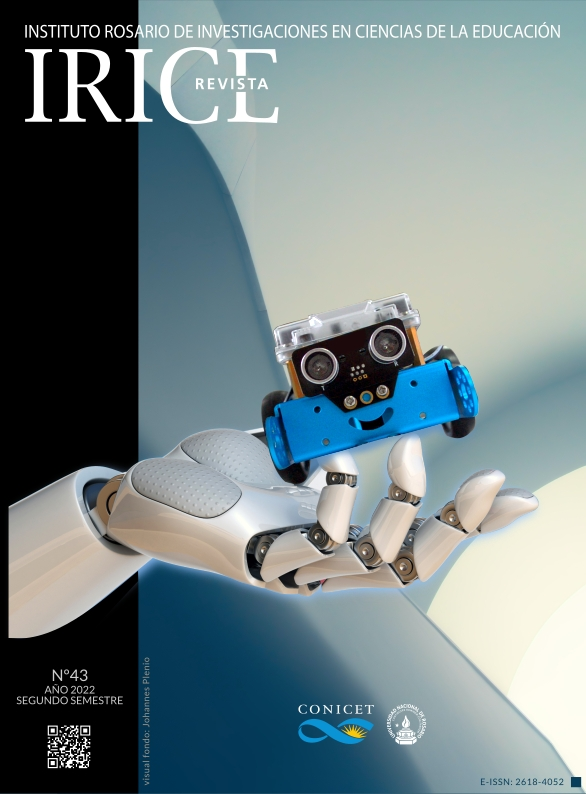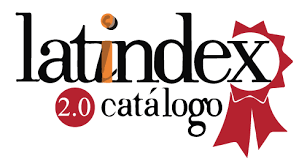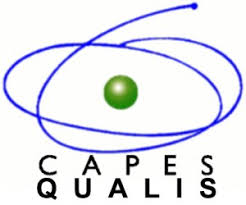Social representations on educational policies in pandemic: disputes, expectations and uncertainties
DOI:
https://doi.org/10.35305/revistairice.vi43.1455Keywords:
pandemic, educational policy, representations, expectations, qualitative researchAbstract
Since the beginning of 2021, an intense public discussion has been generated in the media and in various spheres of daily life about the need, opportunity and relevance of school attendance in the context of the COVID-19 pandemic. The political disputes around the issue and the varied marches and countermarches of education systems around the world regarding their policies of opening and closing school buildings have placed education at the center of the scene. Inspired by the scarcity of local studies about the representations of the general population about educational policies in pandemic and committed to contribute from research to understanding the present, the authors of this article set out to analyze the representations of the population about the situation education and policies of return to presence during the year 2021 in Argentina. In the first place, the social representations about the beginning of face-to-face classes and their subsequent eventual or actual suspension are presented according to the epidemiological situation of each jurisdiction due to the increase in cases in the framework of the second wave of the pandemic. Second, expectations about the 2021 school year are discussed.
In the framework of a more comprehensive investigation corresponding to the PISAC COVID-19 call, this work is based from 47 semi-structured interviews carried out between April and May of 2021 to inhabitants of different regions of the country with and without direct contact with the educational system, who investigated the various topics of the project, including the educational question. The analysis of the article focuses on the positions around the main measures associated with the return to presence taken by governments and the expectations associated with the return to schooling and the future of the 2021 school year.
Downloads
References
Ambao, C., Montesinos, M. P., & Schoo, S. (2020). Relevamiento de iniciativas jurisdiccionales de continuidad pedagógica en el contexto de aislamiento social, preventivo y obligatorio. Ministerio de Educación. https://mapa.educacion.gob.ar/img/informe-continuidades-pedagogicas-ok.pdf
Bandura, A. (1986). Social foundation of thought and action. Prentice-Hall.
Baquero, R., Terigi, F., Toscano, A., Briscioli, B., & Sburlatti, S. (2009). Variaciones del régimen académico en escuelas medias con población vulnerable. Un estudio de casos en el Área Metropolitana de Buenos Aires. Revista Iberoamericana sobre Calidad, Eficacia y Cambio en Educación, 7(4), 292-319.
Bonal Sarró, X., & González, S. (2021). Educación formal e informal en confinamiento: una creciente desigualdad de oportunidades de aprendizaje. Revista de la Asociación de Sociología de la Educación, 14(1), 44-62.
Bourdieu, P. (1985). ¿Qué significa hablar? Economía de los intercambios lingüísticos. Akal.
Bourdieu, P. (1987). Choses dites. Les Éditions de Minuit.
Bozkurt, A., Jung, I., Xiao, J., Vladimirschi, V., Schuwer, R., Egorov, G., Lambert, S. R., Al-Freih, M., Pete, J., Olcott, D., Rodes, V., Aranciaga, I., Bali, M., Álvarez, A. V., Roberts, J., Pazurek, A., Raffaghelli, J. E., Panagiotou, N., de Coëtlogon, P., ...Paskevicius, M.(2020). A global outlook to the interruption of education due to COVID-19. Pandemic: Navigating in a time of uncertainty and crisis. Asian Journal of Distance Education, 15(1), 1-126. https://www.researchgate.net/publication/341977677_A_global_outlook_to_the_interruption_of_education_due_to_COVID-19_Pandemic_Navigating_in_a_time_of_uncertainty_and_crisis
Cardini, A., D’Alessandre, V., & Torre, E. (2020). Educar en tiempos de pandemia. Respuestas provinciales al COVID-19 en Argentina. CIPPEC.
Carletti, G. M. (2017). Las representaciones sociales sobre la participación en toma de decisiones escolares. En C. Chardon, N. G. Murekian & H. Scaglia (Eds.), Investigaciones en representaciones sociales en Argentina (pp. 125-149). Universidad Nacional de Quilmes.
Cuevas Cajiga, Y., & Mireles Vargas. O. (2016). Representaciones sociales en la investigación educativa. Estado de la cuestión: producción, referentes y metodología. Perfiles educativos, 38(153), 65-83. http://www.scielo.org.mx/scielo.php?script=sci_arttext&pid=S0185-26982016000300065&lng=es&tlng=es
Di Piero, E., & Miño Chiappino, J. (2020a). Pandemia, desigualdad y educación en Argentina: un estudio de las propuestas a nivel subnacional. En S. Herrera, G. Gutiérrez Cham & J. Kemner (Coords.), El impacto COVID-19 en América Latina y el Caribe (pp. 321-347). Centro de Estudios Latinoamericanos Avanzados (CALAS). http://www.calas.lat/sites/default/files/pandemia_y_crisis_ebook.pdf
Di Piero, E., & Miño Chiappino, J. (2020b). Pandemia, desigualdad y nivel secundario: trayectorias de las políticas de virtualización a nivel subnacional durante 2020. Propuesta Educativa, 29(54), 42-58. http://propuestaeducativa.flacso.org.ar/wp-content/uploads/2021/05/REVISTA-54-dossier-Piero.pdf
Giddens, A. (1984). La constitución de la sociedad. Bases para la teoría de la estructuración. Amorrortu.
Gimenez, Y., Guirado, A., & Mazzitelli, C. (2021). Representaciones sociales y práctica reflexiva en la formación inicial docente en ciencias naturales y tecnología. Revista Educación, 45(1), 326-345. https://revistas.ucr.ac.cr/index.php/educacion/article/view/40654
Jacovkis, J., & Tarabini, A. (2021). COVID-19 y escuela a distancia: viejas y nuevas desigualdades. Revista de la Asociación de Sociología de la Educación, 14(1), 85-102.
Jodelet, D. (1984). Las representación social: Fenómenos, concepto y teoría. En S. Moscovici, Psicología social II (pp. 469-494). Paidos.
Jodelet, D. (2011). Aportes del enfoque de las representaciones sociales al campo de la educación. Espacios en Blanco. Revista Educación, 21, 133-154.
Ministerio de Educación de la Nación & UNICEF (2020). Informe preliminar de Encuesta a Hogares. Continuidad pedagógica en el marco del aislamiento por COVID-19. https://www.argentina.gob.ar/sites/default/files/informe_preliminar_encuesta_a_hogares.pdf
Moscovici, S. (1979). El psicoanálisis, su imagen y su público. Huemul.
Nuttin, J. R. (1984). Motivation, planning, and action. A relational theory of behavior dynamics. Lawrence Erlbaum Associates.
Piña Osorio, J. M., & Cuevas Cajiga, Y. (2004). La teoría de las representaciones sociales: Su uso en la investigación educativa en México. Perfiles educativos, 26, 102-124. http://www.scielo.org.mx/scielo.php?script=sci_arttext&pid=S0185-26982004000100005&lng=es&tlng=es
Resolución N° 364/2020. 97° Asamblea del Consejo Federal de Educación. 27 de julio de 2020. Consejo Federal de Educación, Argentina. https://www.argentina.gob.ar/sites/default/files/res_cfe_364_-_20_-_if-2020-48355033-apn-sgcfeme.pdf
Tamayo Saenz, M. (1997). El análisis de las Políticas Públicas. En R. Bañón & E. Carrillo (Comps.), La Nueva Administración Pública (pp. 281-311). Alianza.
Terigi, F. (2008). Los cambios en el formato de la escuela secundaria argentina: por qué son necesarios, por qué son tan difíciles. Propuesta Educativa, 29, 63-71. https://www.redalyc.org/pdf/4030/403041701008.pdf
Tiramonti, G. (Dir.). (2011). Variaciones sobre la forma escolar. Límites y posibilidades de la escuela media. Homo Sapiens Ediciones.
UNICEF (2020). COVID-19: Are children able to continue learning during school closures? A global analysis of the potential reach of remote learning policies. https://data.unicef.org/resources/remote-learningreachability-factsheet/
Published
How to Cite
Issue
Section
License
Copyright (c) 2022 Pilar Alzina, Valeria Dabenigno, Emilia Di Piero, Ada Freytes Frey

This work is licensed under a Creative Commons Attribution-NonCommercial-ShareAlike 4.0 International License.
Aquellos autores/as que tengan publicaciones con esta revista, aceptan los términos siguientes:
- Los autores/as conservarán sus derechos de autor y garantizarán a la revista el derecho de primera publicación de su obra, el cuál estará simultáneamente sujeto a la Licencia Creative Commons Reconocimiento-NoComercial-CompartirIgual 4.0.
- Los autores/as podrán adoptar otros acuerdos de licencia no exclusiva de distribución de la versión de la obra publicada (p. ej.: depositarla en un archivo telemático institucional o publicarla en un volumen monográfico) siempre que se indique la publicación inicial en esta revista.
- Se permite y recomienda a los autores/as difundir su obra a través de Internet (p. ej.: en archivos telemáticos institucionales o en su página web) antes y durante el proceso de envío, lo cual puede producir intercambios interesantes y aumentar las citas de la obra publicada. (Véase El efecto del acceso abierto).




















